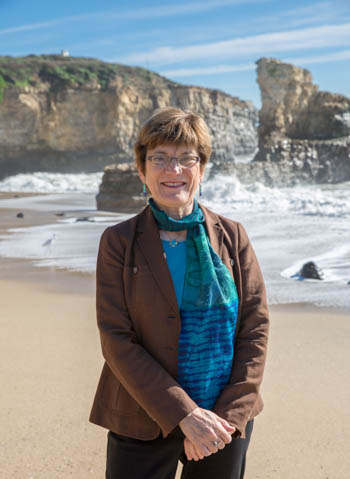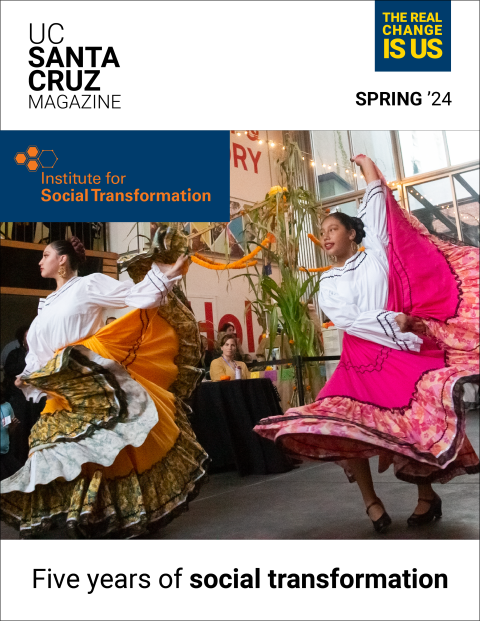Environmental Studies Professor Anne Kapuscinski, director of the UC Santa Cruz Coastal Science and Policy program, will present recommendations on strengthening sustainability education during the “Our Planet, Our Future” Nobel Prize Summit next week.
The first-ever Nobel Prize Summit will convene Nobel Prize laureates with other global thought leaders for a three-day virtual event to discuss challenges and opportunities in putting the world on a path toward a more sustainable future. Day three of the event, on April 28th, features solution sessions hosted by summit partners, and Kapuscinski will speak during a session titled “The Future of Sustainability Education,” hosted by the National Academies of Sciences, Engineering, and Medicine (NASEM) from 7–8:30 a.m. PDT.
This session is free and open to the public, with prior registration. Kapuscinski will share findings from a report titled Strengthening Sustainability Programs and Curricula at the Undergraduate and Graduate Levels, for which she led the development as chair of a NASEM committee. Her presentation will be followed by a panel discussion, including representatives of the World Bank and the United Nations Educational, Scientific, and Cultural Organization. The session will then conclude with a special dialogue with 1993 Nobel Prize winner Sir Richard Roberts.
The insights Kapuscinski will share during this session were informed in part by leading sustainability education programs at higher education institutions across the country, including some at UC Santa Cruz. The committee that produced the report visited UCSC’s Coastal Science Campus and toured the Center for Agroecology and Sustainable Food Systems during their development process. The Coastal Science and Policy program was ultimately featured within the report as an example of how experiential learning can prepare the next generation of sustainability leaders.
Kapuscinski and other members of the report’s development committee have been sharing their findings at conferences and events across the country, including the 2021 American Association for the Advancement of Science annual meeting earlier this year. The upcoming Nobel Prize Summit event will be a new opportunity to reach a global audience. The full event runs from April 26 through April 28, and free registration is available online.



